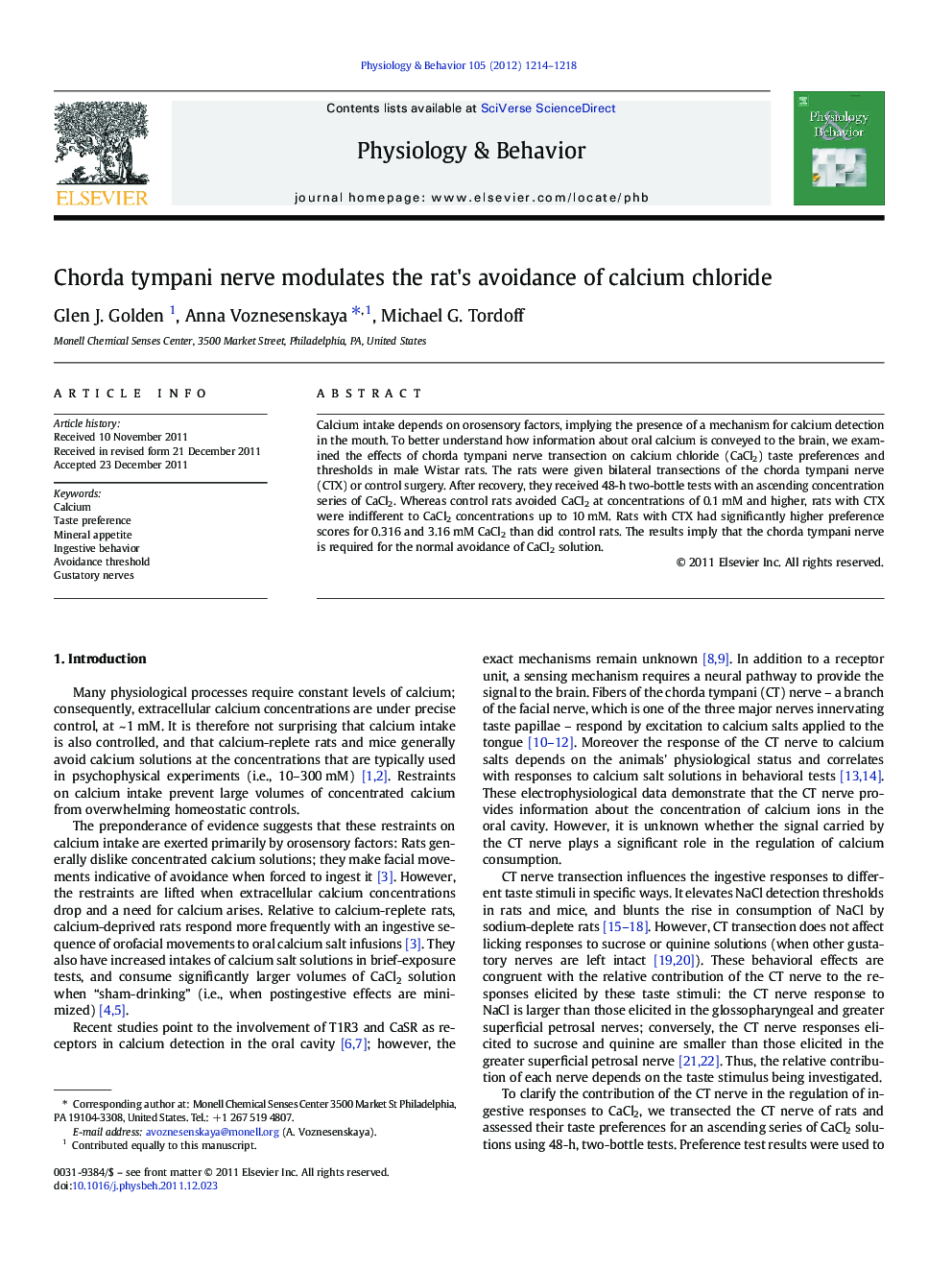| Article ID | Journal | Published Year | Pages | File Type |
|---|---|---|---|---|
| 5925071 | Physiology & Behavior | 2012 | 5 Pages |
Calcium intake depends on orosensory factors, implying the presence of a mechanism for calcium detection in the mouth. To better understand how information about oral calcium is conveyed to the brain, we examined the effects of chorda tympani nerve transection on calcium chloride (CaCl2) taste preferences and thresholds in male Wistar rats. The rats were given bilateral transections of the chorda tympani nerve (CTX) or control surgery. After recovery, they received 48-h two-bottle tests with an ascending concentration series of CaCl2. Whereas control rats avoided CaCl2 at concentrations of 0.1Â mM and higher, rats with CTX were indifferent to CaCl2 concentrations up to 10Â mM. Rats with CTX had significantly higher preference scores for 0.316 and 3.16Â mM CaCl2 than did control rats. The results imply that the chorda tympani nerve is required for the normal avoidance of CaCl2 solution.
⺠We examined the effects of chorda tympani nerve transection on CaCl2 taste preferences. ⺠Chorda tympani nerve transection raised the preference scores for CaCl2. ⺠Chorda tympani nerve is required for the normal avoidance of CaCl2.
